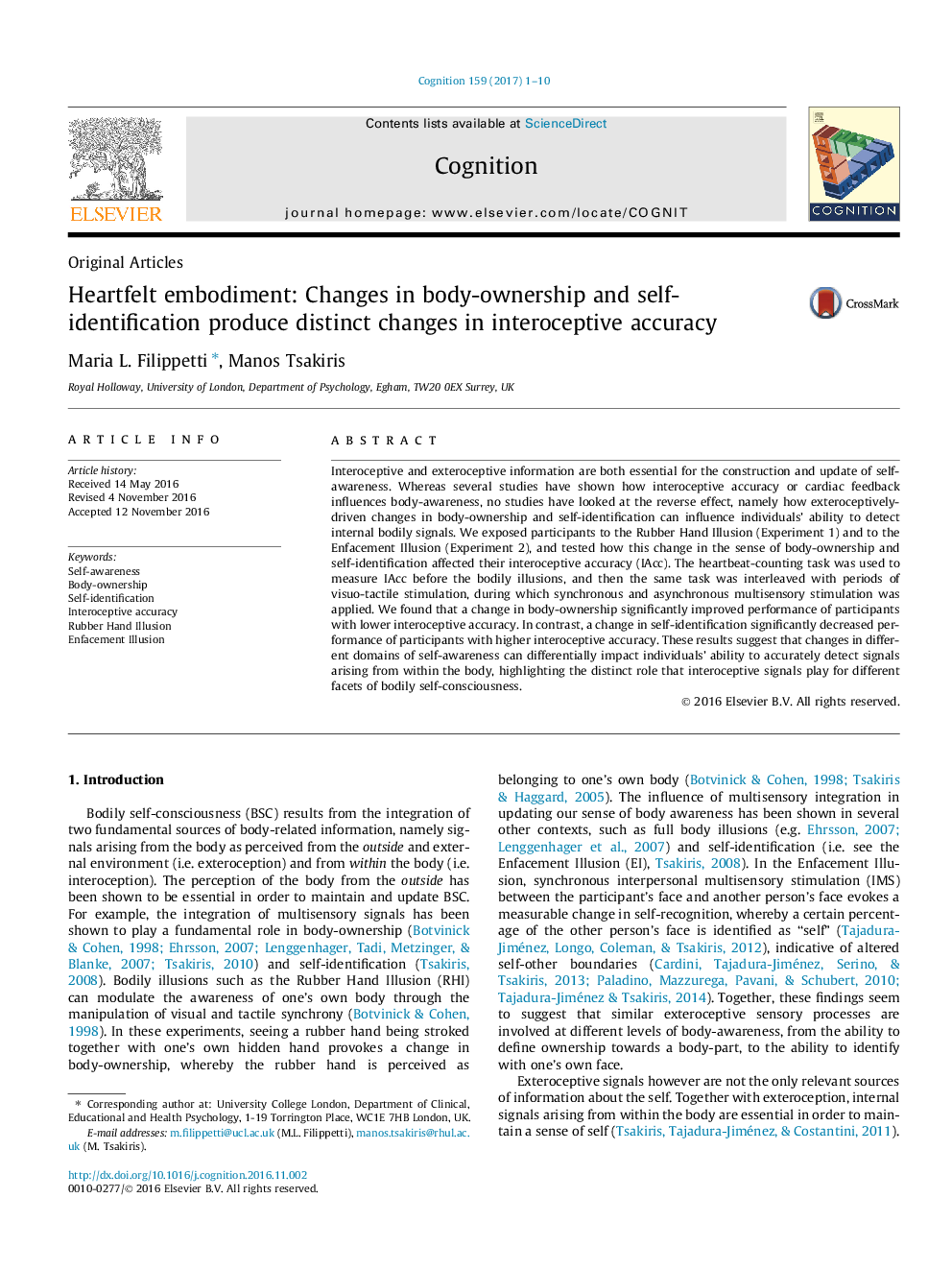ترجمه فارسی عنوان مقاله
تجسم قلب و عروق: تغییرات در مالکیت بدن و خود شناسایی باعث تغییرات متمایز در دقت بینابینی می شود
عنوان انگلیسی
Heartfelt embodiment: Changes in body-ownership and self-identification produce distinct changes in interoceptive accuracy
| کد مقاله | سال انتشار | تعداد صفحات مقاله انگلیسی |
|---|---|---|
| 123155 | 2017 | 10 صفحه PDF |
منبع

Publisher : Elsevier - Science Direct (الزویر - ساینس دایرکت)
Journal : Cognition, Volume 159, February 2017, Pages 1-10
ترجمه کلمات کلیدی
خودآگاهی، مالکیت بدن، خود شناسایی، دقت بینابینی، تلنگر دستی اختلال تصور،
کلمات کلیدی انگلیسی
Self-awareness; Body-ownership; Self-identification; Interoceptive accuracy; Rubber Hand Illusion; Enfacement Illusion;

